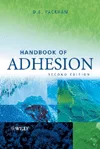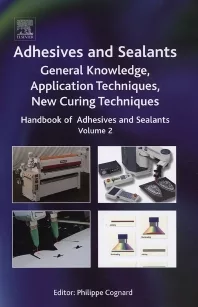FEICA Highlights Importance of Reasonable Approach to Extension of Polymer Registration Requirements
Several relevant parameters need to be considered regarding a proposed registration of polymers under REACH, according to FEICA.

In a recent position paper entitled “Registration of Polymers–Adhesives and Sealants Industry Perspective,” FEICA, the Association of the European Adhesive & Sealant Industry, explains the perspective of the adhesives and sealants industry regarding the registration of polymers. Polymers are currently not included in the registration requirements under Regulation (EU) No. 1907/2006 – Registration, Evaluation, Authorisation and Restriction of Chemicals (REACH). However, in terms of Article 138(2) of REACH, a possible further review is foreseen to extend the registration requirements to polymers.
If the risk posed by certain polymers can be proven, and practical and cost-efficient ways of selecting polymers requiring registration (PRR) can be established, registration requirements under REACH will be extended to polymers. Several relevant parameters need to be considered regarding a proposed registration of polymers. As so many polymers are used in the adhesives and sealants industry (possibly 500-1,500 for an individual manufacturer, if no grouping of polymers is considered), registration would be very difficult for medium-sized and small businesses. (Annex 1 of FEICA’s position paper provides detailed examples of the multiplicity of polymers.)
In addition, adhesives and sealants companies often customize polymers for technical feasibility and customer requirements, as well as regulatory needs. Without such customized polymers, end users would be left with products of higher hazard profile and/or insufficient performance. Customizing polymers may result in a huge number of new polymers to be potentially registered, while the total production volume of each individual polymer may be comparatively low.
While the total production volume of an individual polymer can be comparatively low, the customized life cycle of a single customized polymer may often be less than three years, depending on customer demands, market developments, and changes in regulatory requirements. The profitability of such short-lived polymers in the adhesives and sealants industry is contingent upon production efficiency, and gains in efficiency might well mean that polymers in use have to be modified. Such can be the case, for example, in the flexible-packaging sector, in the wood and furniture industry, and in the electronics industry.
FEICA proposes that a viable solution be created, with pragmatic grouping criteria to balance the economic impact on the industry. Exposure needs to be considered while defining polymers requiring registration, and exemptions for polymeric precursors should be granted when exposure is controlled within industrial settings.
For additional details and to access the position paper, visit www.feica.eu.
Looking for a reprint of this article?
From high-res PDFs to custom plaques, order your copy today!





(1).webp?height=200&t=1698960143&width=200)



